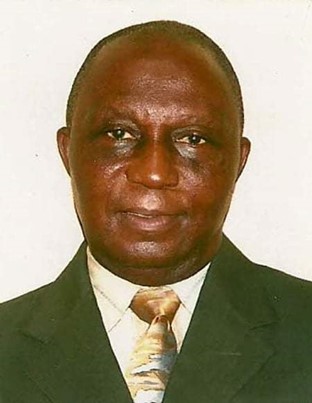In Defense of Corruption?
SURPRISE, SURPRISE!!! CORRUPTION MAY BE GOOD FOR YOU. Who said? Not me. Before you rush to denounce me for inconsistency on the subject, I call your attention to a recent article by Dr. John Hooker in Forbes Magazine. Dr. John Hooker is a highly esteemed professor of Business Management at the Tepper School of Business at Carnegie Mellon University in the USA. The article is entitled: “What is corruption? It’s not so simple.†(Photo: Dr. Hassan B. Sisay)
In the article, Dr. Hooker brilliantly utilizes a confounding argument in support of corruption. Using a series of clever but seemingly euphemistic phrases, he manages to reach a conclusion that may resonate with some individuals and even legitimize the activities of some offices of many African nations. Professor Hooker appears to endorse practices that many would quickly dismiss as corrupt and unacceptable. The above notwithstanding, Hooker’s robust defense of corruption is thought provoking, engaging, and requires careful analysis. But you be the final judge.
For starters, let us define corruption, as influence peddling, the misuse of public office for private profit, extorting a bribe, nepotism, cronyism, patronage, theft of state assets, breach of trust by a public official etc. Note that the AFRICAN UNION (AU) has estimated that African nations lose about $150 billion annually from corrupt practices. Further, Sang-Jin Wei , Advisor to the International Monetary Fund (IMF) and Senior Fellow at the Brookings Institution has concluded that “It is possible… to find examples of places that have done well in spite of corruption, but hard to think of anywhere that has done well because of itâ€. In short everyone seems to believe that corruption fuels political instability, engulfs development, increases the cost of goods and services, and must be rooted out.
Dr. Hooker seems to disagree. He maintains that a closer examination of business practices worldwide shows, “it’s often not so clear what is corrupt and what is not.†He argues that “side payments, cronyism and nepotism can be entirely legitimate when practiced responsibly in the right cultural context.†Using Asia and Africa as examples, Dr. Hooker noted that “ nepotism, cronyism and bribery can increase society’s cohesion, help to redistribute resources and actually add to the efficient management of business institutions operating in developing nations. On giving jobs to family members and gifts to people of influence, Professor Hooker describes that as “responsible nepotism,†and important to relationship building. Awarding contracts “ to an old friend rather than the lowest bidder,†is also acceptable, because the “friend can be trusted to deliver a good product,†based on the existing good relationship between the contractor and the client. The professor of Business Management wrote that such practices, “ becomes corrupt only when [one] favors friends simply because they are friends, rather than because they can be trusted to do the right job.â€Â In what appears to be his strongest argument in defense of his corruption thesis, Dr. Hooker stated that “western cultures are built on rules and transparency, while most of the world’s other cultures are relationship-based. Westerners trust rule-based institutions; others trust their friends and family far more and are therefore especially keen to cultivate strong relationships.â€Â
The author cites Korea as an example where a culture of gift giving to high officials is common, especially during weddings and funeral ceremonies. In West Africa’s villages, Hooker argued that “ African leaders earned respect by judiciously bestowing gifts and favors on their subjects.†He described such a patronage system as “rational redistribution,â€Â aimed at ensuring that  “the chief channeled wealth where it was most needed, increasing the community’s survival advantage.â€Â In order to maximize their future influence in Africa, Professor Hooker advised business executives to engage in what he described as “responsible generosity,†meaning, rebuilding schools and various infrastructures rather than directly bribing government officials.
Hooker uses phrases like: “responsible nepotism,†“rational redistribution,† “responsible generosity,†and “responsible cronyism†to defend the indefensible. Corruption is wrong whether it is practiced in the developing world or in western economies. To get to the point where Africa can use the concepts outlined by Professor Hooker in a responsible manner that ensures equitable distribution of wealth and quality services and products, Africa must first learn how to respect and play by rules. But this is my view. What is yours?
Dr. Hassan B. Sisay, Green Bay, Wisconsin Stay with Sierra Express Media, for your trusted place in news!© 2010, https:. All rights reserved.






